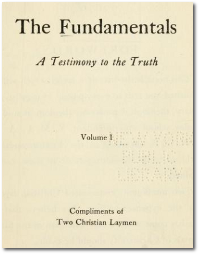Identity: Who Are We?
 Originally written for The Body Builder, a publication of Highland Park Church.
Originally written for The Body Builder, a publication of Highland Park Church.
Many times folks have mentioned that a relative has begun attending church. When I ask the name of the church, people sometimes have no idea. When I ask what kind of church they are attending (Baptist, Methodist, Christian, etc.), they often have no clue either!
The lesson, of course, is that most Christians are confused about various denominational beliefs and differences. Some do not take seriously the differences in belief between churches. In their view, as long as one attends church, that is all that matters. In my mind, attending a non-evangelical church can be worse than attending no church.
Still, I admit, it is confusing. To make matters worse, some churches believe the Bible is historically and theologically reliable (we call such churches conservative) while others doubt some or much of it (we call such churches liberal). Others have a mixture of belief and unbelief.

 This June is a month of changes for SharperIron. Several design changes are planned by month’s end. A restructuring of the Forums is in the works.
This June is a month of changes for SharperIron. Several design changes are planned by month’s end. A restructuring of the Forums is in the works.
 The Fundamentals was a series of articles first published between 1910 and 1915 as the fulfillment of an oil millionaire’s (Marsden, 118) dream. He didn’t dream of becoming a Christian publishing magnate. Rather, Lyman Stewart aimed to fortify Christian leaders in the fundamentals of the faith against the tide of unbelief—specifically the unbelief of higher criticism.
The Fundamentals was a series of articles first published between 1910 and 1915 as the fulfillment of an oil millionaire’s (Marsden, 118) dream. He didn’t dream of becoming a Christian publishing magnate. Rather, Lyman Stewart aimed to fortify Christian leaders in the fundamentals of the faith against the tide of unbelief—specifically the unbelief of higher criticism.

Discussion